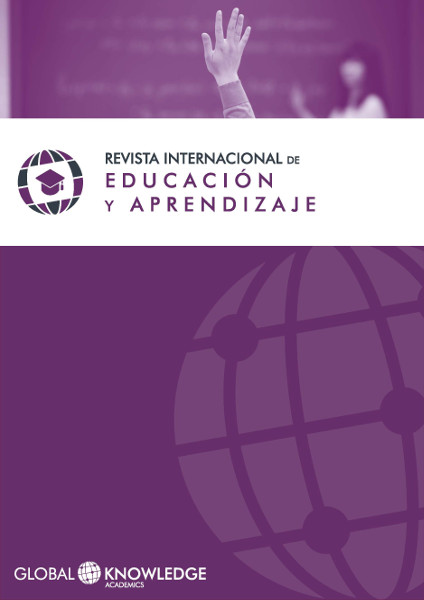La conciliación laboral-familiar y su relación con el rendimiento escolar: ¿cómo influyen las situaciones laborales de los progenitores en la educación de los hijos?
DOI:
https://doi.org/10.37467/gka-revedu.v3.586Palabras clave:
conciliación, conflicto trabajo-familia, sociedad, familia y rendimiento escolarResumen
El estudio apunta a que una pesada carga de trabajo repercute fuertemente sobre el ámbito familiar del cónyuge y de los hijos, con respecto al propio bienestar. Los hombres de hoy en día se enfrentan a un «dilema invisi-ble» que surge cuando tratan de conciliar el papel de trabajador y la vida y las obligaciones familiares. Estos hombres se muestran insatisfechos con la gestión de su tiempo. Desean disponer de más tiempo para sí mismos, para la pareja, para la familia; pero no consiguen sacar ese tiempo de su situación real. El contexto de trabajo se presenta como una presión continua y una demanda de presencia y de compromiso que hace que estos hombres sean cada vez más depen-dientes del trabajo. La realidad es que estos hombres, sobre todo los que ocupan cargos directivos, trabajan mucho y el trabajo termina adentrándose en la esfera privada y colonizando el espacio familiar. Asimismo parece que para mu-chos de estos hombres, el trabajo sigue siendo lo primero y es más importante que la familia. En consecuencia el tiempo que dedican a los hijos, especialmente a ayudar en sus tareas escolares es muy pequeño lo cual incide en su rendimiento académico.
Descargas
Estadísticas globales ℹ️
|
808
Visualizaciones
|
459
Descargas
|
|
1267
Total
|
|
Citas
Acereda, A., López Puig, A. (2012). La problemática de los niños superdotados. Madrid: Síntesis.
Alles, M.A. (2005). La mujer y el trabajo. Buenos Aires: Granica.
Barrancos, D. (1996) Una asignatura pendiente: la calificación técnica y tecnológica de las mujeres. La Mujer y el Trabajo. Revista de Trabajo y Seguridad Social, 3 (10), 73-86.
Boca, D. D., Pasqua, S. y Pronzato, Ch. (2009). Motherhood and market work decisions in institutional context: A European perspective. Oxford Economics Papers, 61, 1147-1171. DOI: https://doi.org/10.1093/oep/gpn046
Davis, N.S. (2011). Dividing the domestic: men, Women and Household in Cross-national Perspective. Gender & Society, 25, 680. DOI: https://doi.org/10.1177/0891243211408298
Garrido, L. y Gil C. (1993). Estrategias familiares . Madrid: Alianza.
López Puig, A. (2007). Implicaciones del equilibrio trabajo-familia. En A. López Puig y A. Acereda (Coord.), Entre la familia y el trabajo: realidades y soluciones para la sociedad actual (pp.19-37). Madrid: Narcea Ediciones.
López Puig, A., Acereda, A. (coord.) (2007b). Entre la familia y el trabajo. Realidades y soluciones para la sociedad actual . Madrid: Narcea.
López Puig, A., Acereda, A. (coord.) (2007a). Repercusiones del ámbito laboral en la vida familiar de los hombres: un estudio evolutivo . Tarragona: URV. DOI: https://doi.org/10.17345/9788484240891
Metz, I. (2011). Women leave work because of family responsibilities: Fact or fiction? Asia Pacific Journal of Human Resources, 49, 285. DOI: https://doi.org/10.1177/1038411111413216
OECD. (2009). Informe de PISA. Recuperado de: http://www.oecd.org/pisa/pisaproducts/49460778.pdf. Recuperado el 2 de abril de 2012.
PNUD. (1995). Informe sobre desarrollo humano. México: PNUD.
Santesmases, M. (2001). Programa estadístico de Diseño y Análisis de Encuestas y Cuestionarios DYANE (versión 2) . Madrid: Pirámide.
Descargas
Publicado
Cómo citar
Número
Sección
Licencia
Los autores/as que publiquen en esta revista aceptan las siguientes condiciones:
- Los autores/as conservan los derechos de autor.
- Los autores/as ceden a la revista el derecho de la primera publicación. La revista también posee los derechos de edición.
- Todos los contenidos publicados se regulan mediante una Licencia Atribución/Reconocimiento-SinDerivados 4.0 Internacional. Acceda a la versión informativa y texto legal de la licencia. En virtud de ello, se permite a terceros utilizar lo publicado siempre que mencionen la autoría del trabajo y a la primera publicación en esta revista. Si transforma el material, no podrá distribuir el trabajo modificado.
- Los autores/as pueden realizar otros acuerdos contractuales independientes y adicionales para la distribución no exclusiva de la versión del artículo publicado en esta revista (p. ej., incluirlo en un repositorio institucional o publicarlo en un libro) siempre que indiquen claramente que el trabajo se publicó por primera vez en esta revista.
- Se permite y recomienda a los autores/as a publicar su trabajo en Internet (por ejemplo en páginas institucionales o personales), una vez publicado en la revista y citando a la misma ya que puede conducir a intercambios productivos y a una mayor y más rápida difusión del trabajo publicado (vea The Effect of Open Access).













